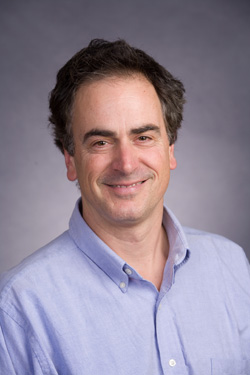
"Drought-Induced Abscisic Acid Signaling and Atmospheric CO2 Sensing in Plants," will be presented by Julian Shroeder from the University of California, San Diego at 4 p.m., Dec. 4 in Beadle Center E103 (1901 Vine Street). The seminar is free and open to the public.
Schroeder's research is directed at elucidating signal transduction mechanisms and pathways that mediate resistance to environmental abiotic stresses in plants linked to water, in particular drought, salinity stress and responses to the continuing increase in atmospheric CO2.
He pioneered the identification and characterization of most of the known major ion channel classes in plants. He developed the model for how these approximately 10 distinct types of plant ion channels function within a network towards controlling plant cell responses, in particular guard cell signal transduction, which regulates water loss from plants. Julian’s lab also identified the plant HKT transporter family and showed its key role and the mechanism through which it mediates salinity resistance in Arabidopsis.
Research on the staple crops rice and wheat is now showing that this same HKT transporter mechanism plays a major role in engineering salinity resistance under saline stress. Water-linked stresses have substantial negative impacts and reduce plant growth. Julian Schroeder will present new advances at understanding how elevated CO2 and the drought stress hormone abscisic acid trigger plant signal transduction and stress resistance.
The complete schedule of seminars may be found at http://biotech.unl.edu/.
More details at: http://go.unl.edu/oqm